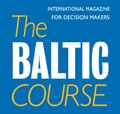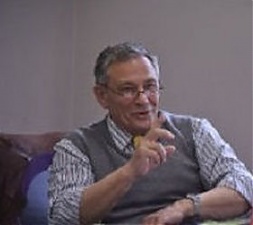
All rights reserved.
You may not copy, reproduce, republish, or otherwise use www.baltic-course.com content
in any way except for your own personal, non-commercial use.
Any other use of content requires the hyperlink to www.baltic-course.com.

Printed: 28.04.2024.
 PrintHealth for all at every stage of life: SDGs in practice
PrintHealth for all at every stage of life: SDGs in practice
 |
|---|
At the end
of September 2015, world leaders during a special UN summit adopted a new
strategy for global development. It was called Transforming
our World: the 2030 Agenda for Sustainable Development" and included 17 Sustainable
Development Goals (SDGs) and 169 smaller targets.
The Agenda has
become a vital commitment of all UN member states to achieve sustainable
development by 2030. For the first time in a world’s history, the adoption of
the 2030 Agenda served as a landmark achievement, providing for a shared
global vision towards sustainable development for all.
The Declaration sees at: https://sustainabledevelopment.un.org/post2015/transformingourworld
Sustainability in health
One of the
SDGs is devoted specifically to health issues: thus the “Goal 3” seeks
to ensure health and well-being for all, at every stage of life. This goal
addresses all major health priorities, including universal health coverage and
access for all to safe, effective, quality and affordable medicines. It also
calls for more research and development, increased health financing, and
strengthened capacity of all countries in health risk reduction and management.
The reasons for urgency are more than clear: over three quarters of premature deaths in the world are presently caused by cardiovascular disease, cancer, diabetes and chronic
respiratory disease.
Global efforts made some success, however: premature mortality from those four
main categories of non communicable disease declined by 15 per cent between
2000 and 2012. Another effort, i.e. reducing tobacco use is going to be
critical for meeting the proposed target of reducing premature mortality by one
third. In 2015, over 1.1 billion people consumed tobacco, with far more male
(945 million) than female (180 million) smokers.
Therefore, sub-goal (3.4 in SDG-3) envisages “… promote
mental health and well-being by 2030”. See the following sources:
General on SDGs: https://sustainabledevelopment.un.org/post2015/transformingourworld;
Goal 3: https://sustainabledevelopment.un.org/sdg3
Definitely most important for humanity is to develop
adequate lifestyle-types leading to physical and mental health. Some good
practical steps could be done already now…
Lifestyle changes to strengthen physical & mental health
Danish “integrative health engineer” as he calls himself (with
several degrees, like Master of Science, IPMA, MBPI and MBBEA), Misha
Sakharoff, also educator and public speaker makes some practical moves.
As he puts in his blog: “My core
competency lies in the combination of physiological knowledge regarding stress
mechanisms and their close relationship with respiration, muscular tension and
body balance”.
http://sakharoff.com/taking-personal-responsibility-health-life/
He has established so-called “Sakharoff’s Resilience &
Health Recovery Program”, which is based on modern physiology being positively
proven both in combating disease and promoting enhanced performance in daily
life, the areas of sport, performing arts and business activity.
The course is specifically tailored, says Misha’s website,
for those wanted “to take responsibility for one’s own health, instead of
relying on medications”. The course is a “path to longevity and joy of life”,
it said; the course is delivered in English, Danish and Russian.
See more: Misha
Sakharoff, Integrative Health Engineer, web: www.sakharoff.com; in: linkedin.com/in/200966;
mail: [email protected];
skype: misha.sakharoff
Course in action: health for all
The course is structured in a way that anyone can accumulate
practical knowledge about personal health in the simplest way. And the
most important information always comes first!
There are numerous courses’ duration: from 3-4 weeks to the
whole year, i.e. 50 weeks! I personally tried the 3-weeks course and my
experience shows it has been very positive…
For example, the first week is devoted to “creating a proper
connection” between movement and breathing: “movements” is everything,
i.e. from any daily physical activities to a walk in the forest, to jogging
to physical exercises to sport, etc.
During the first week patients/clients are training/working
to establish a “proper relationship” between movement and breathing.
By “movement”, all types of daily physical activity are
meant: from walks in the park or forest, to jogging, to physical exercise, to sport,
etc.
In the beginning of every week comes a video package
containing visual examples of week’s work, e.g. daily respiration, physiology,
way of training, etc.
It is vital for people to see (as it has some consequential
effect) how they proceed actually through various movements and physical
training in a daily life.
Misha underlines that his 50-week online course is built on
the assistance to a “trainee to reverse lifestyle disease”. As he postulates,
“health can be improved with some integrated efforts combining nutrition,
breathing, mental training, physical movement and immunity”.
Mr. Sakharoff calls his system an integrative health: as it is
about looking at “the whole picture in order to heal the whole person”.
Systematic personal training in the long run can do more for the health than
medicine, any drug supplements or/and surgery combined. Therefore the course
integrates the teaching of physiology of the body with psycho-physiological
mental training, supported lifestyle change and constant personal follow-up.
All testimonials are documented with articles and videos providing
necessary credibility; see more on: http://sakharoff.com/testimonials/
Videos are available through the direct link: http://sakharoff.com/week-1-video-ftld/
The whole body is to be cured…
The course’s concept is based on the presumption that “our
body is strong and it is possible to help it to restore its strong natural
balance, so-called physiological equilibrium”. In order to achieve lasting
results, Mr. Sakharov said “it is important to understand and accept the
following fact: the equilibrium-process will require progressive lifestyle
change, i.e. a gradual change of small daily habits”. Only in this way the
change will be strong and everlasting, he adds.
Misha Sakharoff gives the readers of our magazine a special
offer to try the courses for just one euro for the first month by using a special
code: Baltic with a special
link to the VIP course page at: http://sakharoff.com/coupon/. Read more about the
courses: http://sakharoff.com
Read and subscribe to Misha's articles: http://sakharoff.com/blog_english-2/
Conclusion
As is generally known, most ambitious aims are reached by
adequate practical steps. So are the practical implementation’s steps of the
global aims, so-called SDGs. Danish “integrative health engineer" provides
for an optimal solution: some weeks’ training can make everyone “healthy at
every stage of life”.
As “healer” postulates: the disease is a war which is going on inside a human body: “it’s like an enemy that entered into your territory and you don’t know how to deal with the invasion”. One tries anything; but the enemy penetrates deeper and deeper: everything in your body becomes affected - inner organs, joints and the psyche, which leads to fear.
If a person is mentally and physically weak then the enemy
quietly wins. If a person is smart and learns how to overcome fear, how to
overcome laziness, then the person wins over “any enemy” penetrated into his/her
territory.
Whatever disease you might have, it could be related to your
heart, brain, internal organs or joints - there is always a cure inside the
human body. Misha argues that “the cure cannot be bought in a pharmacy; the
right pharmacy is inside one’s body…
Many people are either lazy, weak, uninformed, ignorant and/or
unwilling to change. But if one has the patience to train everyday and make a
lifestyle change according to “smart recommendations” and supervision, then one
can definitely win over the disease and normalize health. Finally, it gives one
a personal responsibility for one’s own health instead of relying on
medications: pills don’t cure, training does.
That’s the simplest and wisest practical implementation of
SDGs third goal to any person striving for lasting heath, longevity and joy of
life!